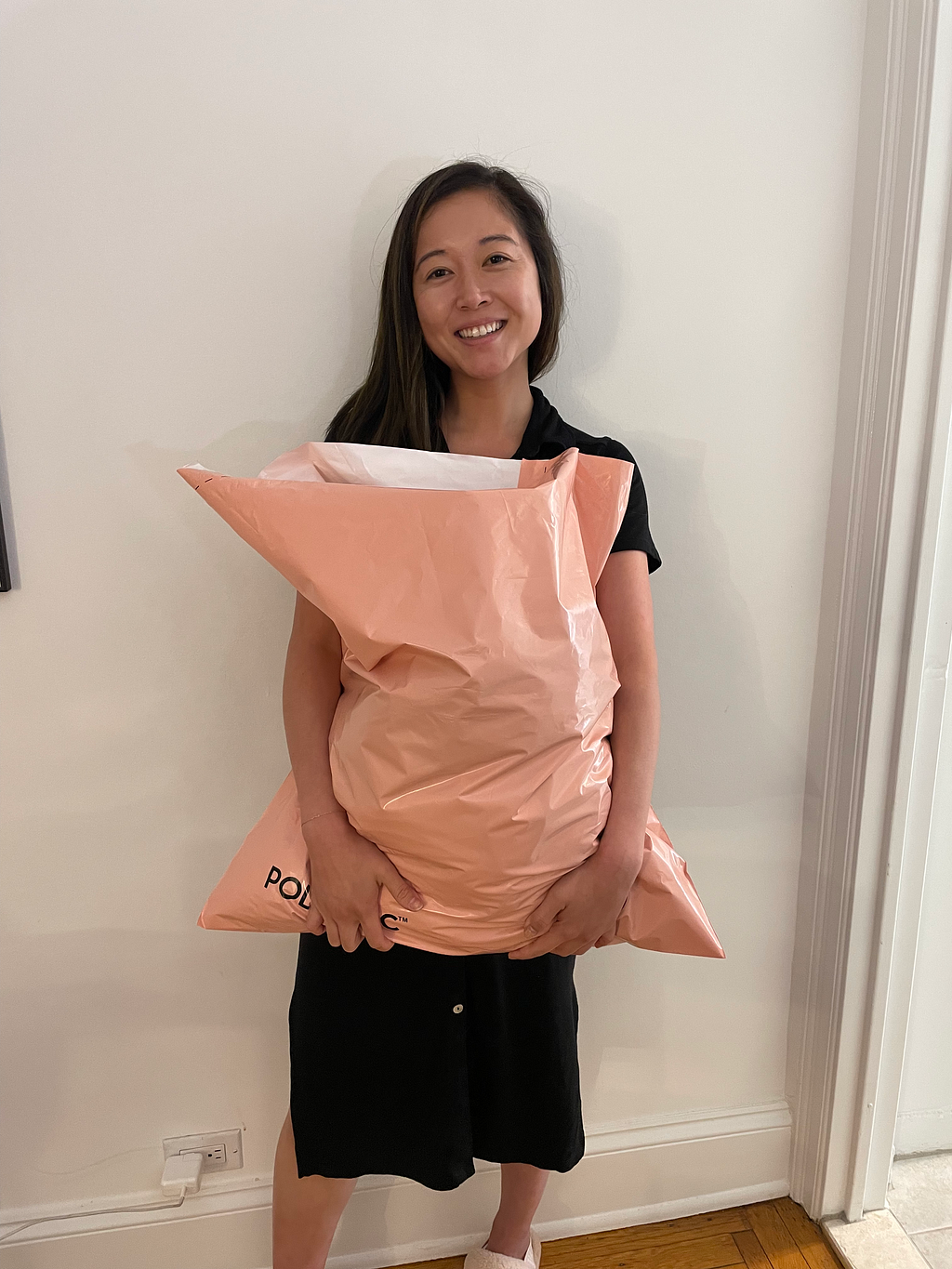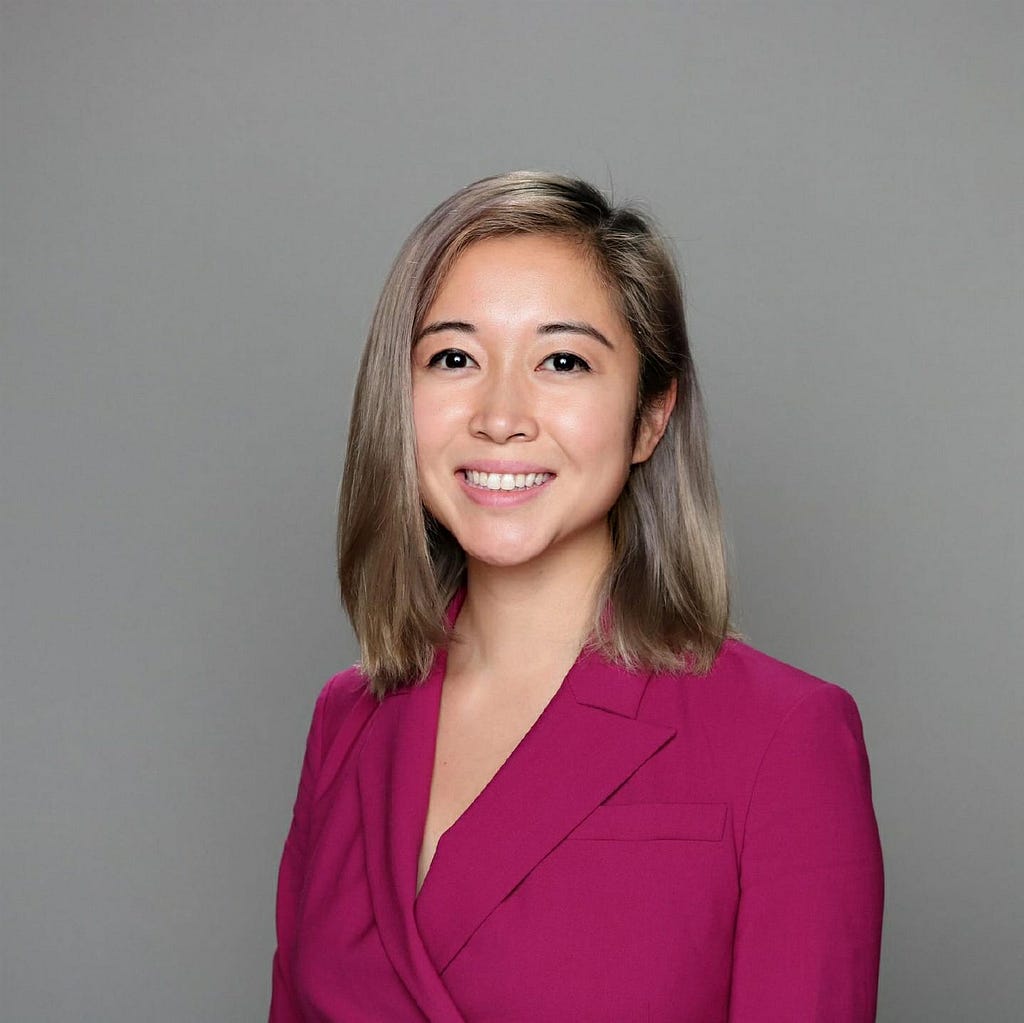An Interview With Monica Sanders
Address basic needs first. People want to do the right thing, but they are also trying to get by. In fashion, that means you want to make sure the designs are just as stunning at an accessible price-point. When you meet these basic needs, then sustainability becomes the tipping point.
According to the University of Colorado, “Those who are most affected and have the fewest resources to adapt to climate change are also the least responsible for the greenhouse gas emissions — both globally and within the United States.” Promoting climate justice is an incredibly important environmental responsibility that is slowly becoming more and more recognized. In this interview series, we are talking to leaders who are helping to promote sustainability and climate justice. As part of this series, we had the pleasure of interviewing Aileen Lee.
Aileen Lee, the founder and CEO of Infinite Goods, a sustainable fashion marketplace for the edgy modern woman, started her career at Lands’ End folding clothes and cleaning dressing rooms before moving to BCG to work on their global fashion and beauty team.
Driven by her love for fashion and retail and having realized the negative environmental and social impact of fashion on society, Aileen launched Infinite Goods to revolutionize the industry by promoting sustainable practices, better labor conditions, and a more circular future.
Aileen Lee holds a 2016 degree from the University of Pennsylvania and completed her MBA at Columbia Business School in 2023.
Thank you so much for doing this with us! Before we dig in, our readers would like to get to know you a bit. Can you tell us a bit about how you grew up?
I grew up in the suburbs of North Carolina, the only daughter of two PhD biologists. I was not the girl who was drawing up fashion designs and sewing them. Instead, I was analyzing ads on TV, putting together guerilla marketing campaigns for pomegranate juice, and selling bracelets on eBay. At one point, I had a note of 100+ business ideas on my phone labeled “Midnight Ideas.” At 16, I got my first job at the mall and worked my first Black Friday. In the rush of adrenaline, I fell in love with the fast-paced and customer-centric environment, and I knew I wanted a future career in retail.
Everyone has a cataclysmic moment or marker in their life which propels them to take certain actions, a “why”. What is your why?
While working for a retail company, I was sent to a distribution center. I walked into what felt like a Costco, but with customers replaced with forklifts. Behind the back was the largest metal trailer I had ever seen. Into it, smaller trailers would dump damaged and returned clothing. To my horror, I learned it was a giant incinerator.
The closing top of the incinerator disturbed me for years as we continued to over forecast inventory to ensure sales. I remember that moment vividly and it drove me to discover a way for our waste streams to be turned into value. I looked at how the plastics industry moved towards recycling, the electronics industry refurbishes computers, the grocery industry sells imperfect produce, and thought — why can’t we do this in fashion?
You are currently leading an organization that is making a difference for our planet. Can you tell us a bit about what you and your organization are trying to change?
Infinite Goods is not just another fashion marketplace; it is a powerful catalyst for change within the industry. With an unwavering commitment to sustainability and ethical practices, we are revolutionizing the way fashion is produced, consumed, and perceived. We aspire to transform the fashion industry into a force for good.
Our mission is clear: to become the vanguard of sustainable fashion marketplaces, cracking the code on sustainable production and ethical labor practices specifically for the edgy modern woman. We firmly believe that fashion can be both captivating and conscious — we are dedicated to bridging this gap.
Can you share the most interesting story that happened to you since you began leading your company or organization?
Our differentiator is a Sustainability Score that we apply to every product explaining why it’s sustainable. The very first version of this included a carbon footprint for each product. I took a sustainability class at Columbia to understand how to calculate carbon footprints and quickly learned that carbon footprints are fuzzy guesses and companies are charging $50k for product carbon footprints!
What was even more surprising was that the consumer had no idea what to do with information! They lacked the context to understand if 24 kgs of carbon was good or bad. That’s when I decided that the US market was not ready for consumer-facing carbon footprints on products.
None of us can be successful without some help along the way. Did you have mentors or cheerleaders who helped you to succeed? Can you tell us a story about their influence?
Pauline Brown, the ex-Chairman of LVMH, is a key advisor but also personal supporter. When I wavered from my entrepreneurial path, she gave me very good advice that I repeat almost every week to other founders and myself: “When else in your life will you have no family or financial commitments where you can really pursue your dreams. You can always fall back on a traditional path if this does not work out, but you must take your shot now or else you never will.”
Thank you for that. Let’s now move to the central part of our discussion. Let’s start with a basic definition of terms so that everyone is on the same page. What does climate justice mean to you? How do we operationalize it?
Climate is a classic common pool resource dilemma. We all share one earth, but our personal decision will ultimately determine whether it’s still livable for our neighbors. Climate justice is about preserving a livable habitat for everyone on earth and future generations. It is about realizing that your own lifestyle does impact the planet and taking actions to decarbonize your lifestyle. This could look different person-to-person ranging from flying less to eating vegetarian once a week.
Science is telling us that we have 7–10 years to make critical decisions about climate change. What are three things you or your organization are doing to help?
We are actively working on reducing the 10% of carbon emissions from the fashion industry. We are working on four key environmental issues:
- Raw materials — we source natural materials like organic cotton and do not carry fossil-fuel based fabrics like polyester, rayon, and nylon.
- Chemicals and dyes — we look for brands using non-toxic chemicals, natural dyes, and organic softeners.
- Renewable energy — we seek brands using renewable energy in their factories.
- Waste saved — we look for brands to save their manufacturing waste and we help consumers recycle their old clothing.
Are there three things the community, society, or politicians can do to help you in your mission?
Society can support us by shopping for sustainable fashion on Infinite Goods. They will be supporting small, independent brands that are on the forefront of innovative sustainable practices. Consumers can also recycle old clothing through our Infinite Loop program, host clothing swaps, and repair old clothing.
There is an incredible piece of legislation, The New York Fashion Act, proposed by one of our key advisors, Michelle Gabriel. It will require fashion companies to certify use of non-hazardous chemicals, report at least 50% of their supply chains, and be liable for workers’ wages. Politicians in the NY legislature should endorse this bill as a sponsor and politicians outside of NY should lead similar legislation in their states.
How would you articulate how a business can become more profitable by being more sustainable and more environmentally conscious? Can you share a story or example?
The most promising way sustainable fashion can be promulgated widely is through lowering the cost. Currently, we have items starting at $20 but that’s still 4x more expensive than the $5 fast fashion garment. Through recycling technology and upcycling designers, we can lower prices. For example, one designer takes vintage men’s blazers and transforms them into new women’s blazers. If we can get her the vintage blazer donated through our circularity program, then we can lower the overall price of the garment.

This is the signature question we ask in most of our interviews. What are your “5 things I wish someone told me when I first started promoting sustainability and climate justice” and why?
1. Climate optimism is important. It’s easy to argue that not all recycling gets recycled and electric vehicles are still powered by a dirty grid. You might feel powerless because society’s infrastructure isn’t quite there. Be sure there are people hard at work trying to make improvements across all supply chains and doing the best you can is enough.
2. Dispel a higher moral ground. When I started working in the climate, suddenly friends would be sure to recycle in front of me or point out their reusable water bottle. I realized that I needed to tell people that we are all human and we try our best but aren’t perfect.
3. Inspire, don’t push. Some people might not care about climate change as much as you do. Yet I see them buying sustainable and vintage dresses, not because they care about climate change but because the brand’s cool. Don’t waste time fighting people to change their values. Focus your energy on those who are ready to change, the rest will follow.
4. Address basic needs first. People want to do the right thing, but they are also trying to get by. In fashion, that means you want to make sure the designs are just as stunning at an accessible price-point. When you meet these basic needs, then sustainability becomes the tipping point.
5. What will your kids think? I recently heard a story about a long-time technology executive who asked this of themselves and changed into a climate career. When the next generation is dealing with the ramifications of climate change and ask you what you did in the critical moments, what will you have to say for yourself?
Is there a person in the world, or in the US with whom you would like to have a private breakfast or lunch with, and why? He or she might just see this, especially if we tag them. 🙂
GRETA THUNBERG, please.
How can our readers continue to follow your work online?
You can visit Infinite Goods, follow us on social media at @_infinitegoods, and sign up for our newsletter.
This was very meaningful, thank you so much. We wish you only continued success on your great work!
About the Interviewer: Monica Sanders JD, LL.M, is the founder of “The Undivide Project”, an organization dedicated to creating climate resilience in underserved communities using good tech and the power of the Internet. She holds faculty roles at the Georgetown University Law Center and the Tulane University Disaster Resilience Leadership Academy. Professor Sanders also serves on several UN agency working groups. As an attorney, Monica has held senior roles in all three branches of government, private industry, and nonprofits. In her previous life, she was a journalist for seven years and the recipient of several awards, including an Emmy. Now the New Orleans native spends her time in solidarity with and championing change for those on the frontlines of climate change and digital divestment. Learn more about how to join her at: www.theundivideproject.org
How Aileen Lee Of Infinite Goods Is Helping to Promote Sustainability and Climate Justice was originally published in Authority Magazine on Medium, where people are continuing the conversation by highlighting and responding to this story.
